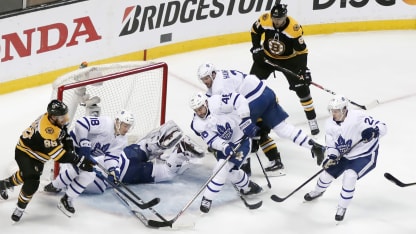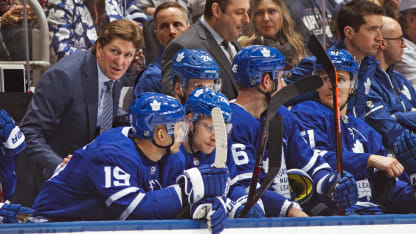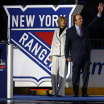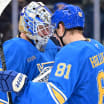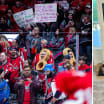Looking ahead to the Draft, are you looking to move up or down? What's your philosophy going in?
"I think this is the lowest we've picked in my time with the Leafs. We picked fourth (in 2015), then first, then 17th and now 25th. I think we're open to anything, moving up, moving down. We certainly have the requisite assets to move up. If there is a case to move down, we'll have our conversations with other general managers in the League and get a sense of what they're looking to do and then make our decisions as it comes along."
In terms of draft preparation, how has it gone since Lamoriello and Hunter left?
"I think it's been made seamless by the staff that's here. We have some great area directors and they've made it very, very easy with their professionalism and their interactiveness. At this time, I've talked with everyone on the amateur staff. Things have gone very, very well at the combine here. We have a smaller contingent here than we normally do with the purpose of having better interactions than we may have had in the past with larger groups and narrow our focus on the next couple of weeks. The scouting staff has been great and I've been very appreciative of the work that they've done."
How important is it to find players who actually want to play in the Toronto market, fishbowl that it is?
"I think it's something to be mindful of, but I don't think it's something where we want to eliminate players just because they're from smaller markets or smaller cities. Say, hypothetically, someone is from northern Saskatchewan and they've only played in a small Western League city or town, it's an adjustment coming to Toronto. At the same time, we've had plenty of players from our team now that aren't from cities or towns that carry with them a similar spotlight. I think the onus is on us to make sure the players are prepared for our market. That falls on us as part of the player development department. Things like public relations, how to best handle oneself, how to cope within the city and the marketplace, and what the expectations are on a player off the ice as well in terms of their character, makeup, development, and how we can help them in the way they have to cope in a place like Toronto. Because it is different. It's on us as a program, not the individual player."
